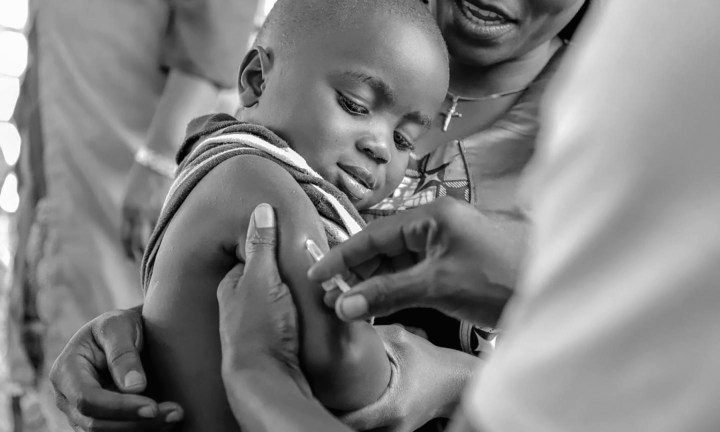HEALTH ALERT
Measles outbreak concern as NICD confirms seven cases in Limpopo

The National Institute for Communicable Diseases has announced that seven cases have been confirmed in the greater Sekhukhune district. This is the second time this year that a small outbreak of the disease is identified in South Africa with the previous four cases having been found in Gauteng.
Seven people living around Groblersdal in Limpopo have been diagnosed with measles, the National Institute for Communicable Diseases said in a statement on Monday.
According to the World Health Organization, five or more cases of the disease with dates of rash onset occurring seven to 21 days apart and that are epidemiologically linked qualify as an outbreak.
Between mid-September and 11 October, public health officials had identified three cases of measles in the district. An alert was issued then. But since then another four cases have been found.
The ages of patients diagnosed with measles range from nine months to 24 years.
Measles is a highly contagious disease caused by a virus.
The most common symptoms are fever and a rash that looks like small, flat, red spots all over the body. It does not form blisters.
Other symptoms include:
- Cough;
- Conjunctivitis; and
- Runny nose.
The virus can cause serious complications like encephalitis (an infection in the brain) as well as blindness, diarrhoea and dehydration. It can be deadly. Infants under two years of age are most at risk.
Measles vaccines are given routinely at six and 12 months of age.
Visit Daily Maverick’s home page for more news, analysis and investigations
Sinenhlanhla Jimoh from the NICD said in a statement that one child with measles had not been vaccinated, and the other five measles cases had an unknown vaccination history.
She said two patients were admitted to hospital and one had developed pneumonia.
“The Greater Sekhukhune District and Limpopo Province Department of Health officials, with the support of other stakeholders including the National Institute for Communicable Diseases, have started with public health response activities. These activities include enhanced surveillance for measles, contact tracing, screening for suspected measles cases using the measles case surveillance case definition followed by collection of blood and throat swabs for measles diagnostic testing, and medical record reviews in healthcare facilities to identify missed cases. Persons who have been exposed to suspected or confirmed cases are being vaccinated to prevent the spread of measles,” Jimoh said.
She said that measles vaccine coverage in the district was at 64%, having dropped from 87% in 2017. This is for the first dose of the vaccine. For the second dose, the coverage was 86% in 2017 but is now 60%. Coverage of around 95% is needed for herd immunity.
The Limpopo Department of Health started a vaccination drive in the Sekhukhune District in October.
Jimoh said a survey was being done to validate the vaccination data provided to the province and investigate factors that might be contributing to the measles outbreak.
“Clinicians should continue to be on the alert for measles cases, especially in Limpopo Province, as large measles outbreaks are occurring in sub-Saharan Africa, including in neighbouring countries,” she added.
There is currently a massive outbreak of measles in Zimbabwe; 750 children have been confirmed dead due to complications of the disease according to the Zimbabwean Ministry of Child Care and Health.
In April the United National Children’s Fund and the WHO had warned of a “perfect storm” that had been created by Covid-19 as worldwide measles cases increased by 79%. In July, South African public health experts also warned that the country was at risk due to low vaccination rates.
At the time the two organisations highlighted that pandemic-related disruptions, increasing inequalities in access to vaccines, and the diversion of resources from routine immunisation were leaving too many children without protection against measles and other vaccine-preventable diseases.
“Measles is more than a dangerous and potentially deadly disease. It is also an early indication that there are gaps in our global immunisation coverage, gaps vulnerable children cannot afford,” Catherine Russell, Unicef Executive Director said at the time. DM/MC















 Become an Insider
Become an Insider
Comments - Please login in order to comment.